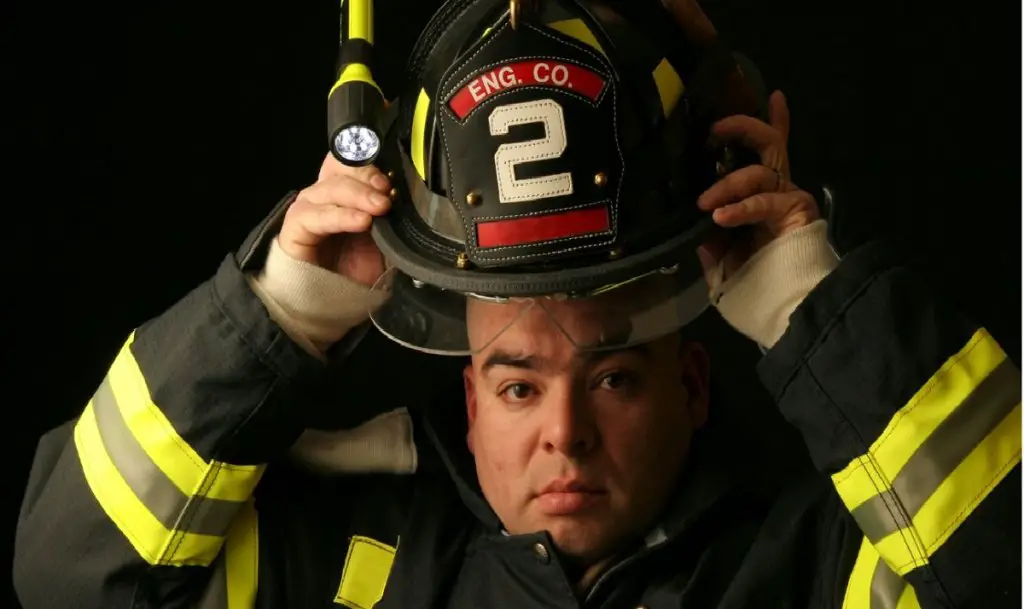An obituary for your father presents an opportunity for you to highlight his achievements, his passion for life, and short anecdotes that give visitors comfort and joy. Writing an obituary for your father may be difficult, but there are templates and examples to follow to ensure you use the proper format.
Like any obituary, the one for your dad contains a few basic facts and the time of services, but writing an obituary for your father can be so much more. You have a chance to give insights into your dad’s personality and stress how he wanted to be remembered.

Table of Contents
What Should You Include In The Obituary For Your Father?
Starting with biographical information is the best way to approach writing an obituary for your father. Giving the cause of death may or may not be appropriate. Still, information such as their full name, surviving family members, details related to the funeral service, in-lieu-of-flowers requests, and other information on accomplishments and education is essential.
The milestones of your father’s life – birth, education, military service, marriage, family, careers, hobbies, favorite sports team, etc. – are the framework for any obituary. Just listing the high points can sound like a LinkedIn profile. To avoid this, present his life as a story that uses examples to get the point across.
Determining the mood and tone is vital. Once that has been determined, filling in details with stories can be helpful. Stories from high school, college, or other exciting times can be beneficial to include and may show that your dad was kind, motivated, always ready for a good time, or proud of his ’67 Chevy. Telling humorous or exciting stories is often a great way to end an obit. These stories should show and give a sense of the life and kind of way that your father operated.
What if there are no appropriate stories available you want to include? If so, keeping an obit simple by focusing on biological facts and information is the right approach. Sharing what your father meant to you and the life lessons that he taught to others can be a fitting end to an obituary in that case.

Setting The Tone For Your Father’s Obituary
Having the right tone is crucial when writing an obituary for your father. People have different families and have other senses of humor.
If your family has a strong sense of humor, writing an amusing, tongue-in-cheek obituary may be the thing that you would fit the deceased best. If this is the case, entertaining stories, even involving family members and friends, might be a welcome addition.
If your surviving family is more serious and the memorial service is more somber, a more professional obituary may be your best option. Playing it safe is often the best route if this is the case.
Taking risks during an obituary or a funeral service is never the best way to go, but you can be creative. The obituary is not a stand-up comedy routine, but if you stick to facts and tell stories that reveal who your dad was, you can make the obituary memorable.
An obit should always honor the loved one who has passed away and respect the family members left behind. Giving biographical information about the deceased and telling stories celebrating life can work well.
Here is an excellent example of an obituary that uses humorous illustrations to capture the deceased. In the following excerpt, Katie Pantzlaff, daughter of Dale Roger Vercauteren of Wisconsin, wrote humorously about her dad:
“Dale studied Commercial Arts at Western Technical College. His work ethic, talents, and honesty led him to open Creative Sign Company in 1985, which was more successful than his short-lived modeling career.”
She went on:
“He retired at 48, allowing him more time to focus on being a better hunter than his friend Ralph. He also enjoyed musky fishing, especially on the Eagle River chain during the family’s annual vacation. Dale’s loyalty and commitment are evident by his life-long friendships and Brett Favre’s Vikings jersey hanging in his closet.”

What Would Your Father Want To Be Remembered For?
What would you want your father to be remembered for? Ask yourself that as you sit down to write an obit that might be used at the funeral service or a celebration of life where friends and relatives often reminisce as they honor the deceased loved one, the best way to approach things.
Helping people to remember a father for the man he was and the things he did right is a great way to approach writing.
Why Should You Leave Some Facts Out Of An Obituary For Father?
No one is perfect, not even your dad.
The best thing to do in an obituary is to note the positives and keep it focused. When an individual has passed away, emotions are always high. It is never a great decision to incite division or cause family issues, which is what can occur when negative things are written in someone’s obituary.
Additionally, obituaries are public, as they are often posted in newspapers. Embarrassing family members by sharing family drama in such a setting is never a good thing to do, either.
Some facts are not worth mentioning, especially if doing so might cause drama in the family. Speaking about first wives can dishonor the current wife, or saying abusive alcoholic tendencies can cause embarrassment. Instead of focusing on his selfish tendencies or how he may have been a ladies’ man, focus on the positive aspects of your father’s life.
This can be difficult for individuals who do not have a positive relationship with their father. Lying is never required in writing an obituary, and if there are not many positive things for you to share, keeping things professional and brief is appropriate.
Keep things focused on facts rather than airing out dirty laundry or causing trouble between family members. This can be a simple and easy way to write an obituary for a father who was not always present or involved.
The family of former New York Police Department officer Lawrence H. Pfaff Sr., whose son Lawrence Pfaff Jr. and other children viewed as selfish, absent, and abusive when he was around, decided to “tell-it-like-it-is” – with unexpected consequences. The Florida-Times Union, a Gannett publication, first published and then retracted the obituary, returning the $168 fee because the obituary defamed the dead person. The newspaper instead offered a number to the Substance Abuse and Mental Health Services Administration and a link to Alcoholics Anonymous. (Read the obituary from the Florida-Times Union here.)

How Can You Personalize An Obituary For Your Father?
The beginning of obituaries is often standardized. Many start with biographical information, but what comes after that is where personalization can take place.
Here are some approaches to personalize the obituary;
- List out major life events that he felt particularly proud of. Focus on the one that stands out.
- List out the stories you remember him telling often. Your audience likely heard them and may enjoy hearing your version.
- List out the childhood memories that stand out most to you. There’s no better way to personalize your obituary than telling a personal story from the heart.
- If your father had a favorite movie, book, band, sports team, etc., showcase his fandom positively.
- Describe how your father spent his free time and the lessons you learned observing him “in his element”.
- List out some lessons he taught you. The more obscure, funny, charming, or relatable, the better.
- Ask his closest friends to share their favorite stories about your father. Use these short anecdotes to give color to the obituary.
Lastly, don’t neglect poems, Psalms if he was Christian, or quotes that paint a picture of the man you knew.
Examples Of Obituaries For Fathers
There are plenty of places to go for examples of writing an obituary for your father. Sometimes, looking online is best; a quick search can yield many free obituary examples. If taking a humorous tone would best suit your dad, type “humorous obituary for father” to see how others have incorporated humor.
Many websites offer free-to-use templates, along with other people’s obituaries. Following and patterning an obituary you find online can help you find your voice in writing your dad’s obituary.
Pro Tip: One of our favorite things to read on the weekend is the New York Times Obituaries. Okay, yeah, it sounds weird. But give at least two recent obits a read, and you'll see how interesting it is to read about people's lives and how others contextualize their accomplishments.

